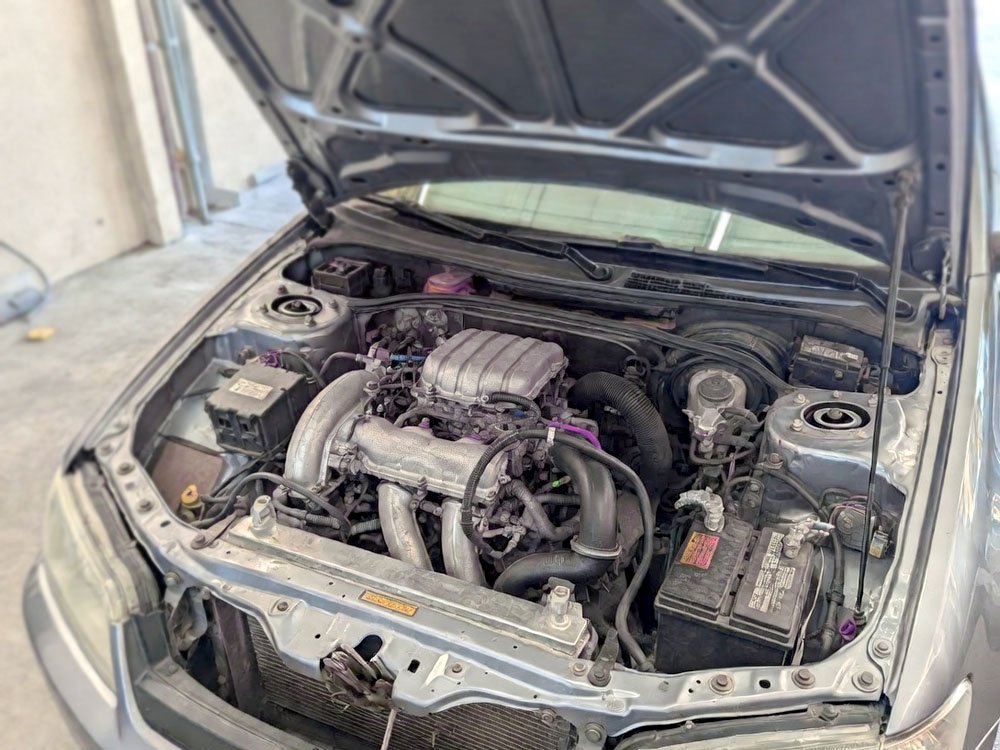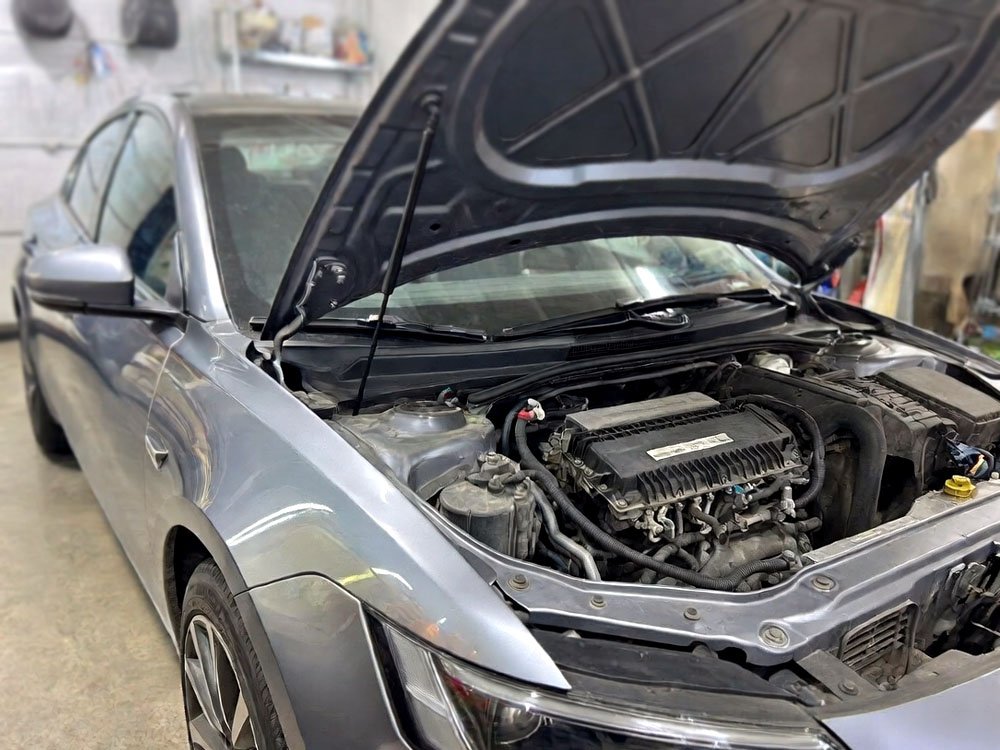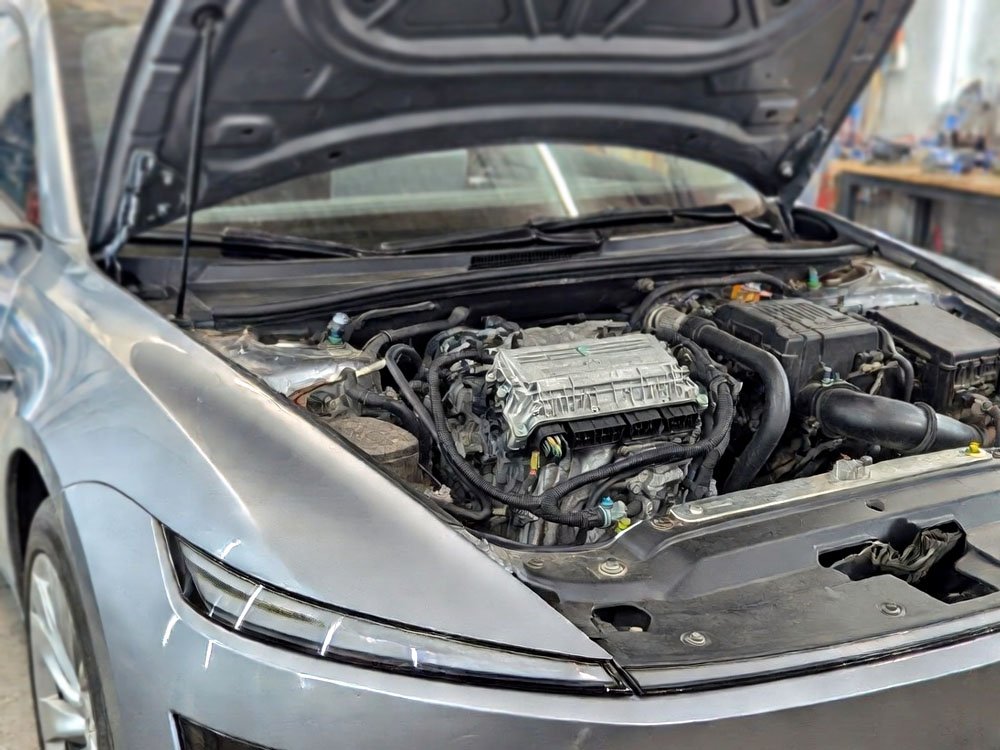To remove scratches from plastic car interior, start by cleaning the area with soapy water. Then, apply a plastic polish to buff out the scratches, followed by a protective coating to prevent future damage.
A scratched plastic car interior can be an eyesore and decrease the overall value of your vehicle. Finding a quick and effective solution to remove these scratches is essential for maintaining the aesthetics and functionality of your car’s interior. By following a few simple steps and using the right products, you can easily restore your plastic car interior to its original condition.
This guide will provide you with the necessary steps to effectively remove scratches from your plastic car interior and keep it looking as good as new.
Identifying The Scratches
Identifying scratches on the plastic car interior is crucial for effective removal. Inspect the surface under bright light to pinpoint the scratches. Once identified, use appropriate methods such as specialized scratch removal products or DIY remedies to restore the interior to its original condition.
Before you can start removing scratches from your plastic car interior, it’s important to properly identify them. Assessing the type and severity of the scratches will help determine the most effective method of repair.
Assessing The Damage
Assessing the damage involves closely examining the area where the scratches are located. Look for any visible signs of scuffing, gouges, or deep indentations. Additionally, assess the depth of the scratches by running your fingers gently across the surface. This will give you an idea of whether the scratches are superficial or have penetrated deeper into the plastic.
Different Types Of Scratches
Understanding the different types of scratches that can occur on your plastic car interior can help you choose the appropriate repair method. Here are some common types:
| Type of Scratch | Description |
|---|---|
| Surface Scratches | These scratches are light and only affect the clear protective coating on the plastic surface. They are often caused by keys, fingernails, or light abrasions. |
| Deep Scratches | Deep scratches are more severe and typically extend beyond the clear coat, reaching the actual plastic surface. These scratches can be caused by sharp objects or heavy impacts. |
| Scuff Marks | Scuff marks are lighter scratches that do not penetrate the surface but can produce noticeable discoloration or light grooves. They are commonly caused by shoes, bags, or other objects rubbing against the plastic. |
| Gouges | Gouges are deep, jagged scratches that can be caused by sharp objects with significant force. These scratches may require more extensive repair methods. |
Identifying the specific type of scratch will help you determine the appropriate course of action for removing it. Note: For deeper scratches or gouges, it is recommended to consult a professional for repair or replacement options.
Credit: www.reddit.com
Preparation And Safety Measures
When removing scratches from plastic car interiors, it is crucial to prioritize safety and be well-prepared. Following the right preparation and safety measures can help you achieve the best results while ensuring your well-being and the protection of your car’s interior.
Gathering The Necessary Tools
Before starting the process, make sure you have all the essential tools and materials at hand. This will ensure a smoother and more efficient scratch removal process. Here are the tools you’ll need:
- A microfiber cloth
- Plastic scratch repair kit
- Plastic cleaner and prep solvent
- Protective gloves
- Mask and safety goggles
Taking Safety Precautions
It’s important to prioritize safety while working on your car’s interior. Follow these essential safety precautions:
- Work in a well-ventilated area to avoid inhaling chemical fumes.
- Wear protective gloves, mask, and safety goggles to shield yourself from harmful chemicals and particles.
- Read and follow instructions carefully to prevent accidents and achieve the best results.
Cleaning The Affected Area
To remove scratches from your plastic car interior, start by cleaning the affected area using a mild soap solution and a soft cloth. Gently rub the scratches in a circular motion until they begin to fade. Repeat the process if necessary, and then wipe away any excess soap residue.
Keep in mind to take care and be gentle while doing so to avoid further damage.
Removing Dust And Debris
Begin by wiping the scratched area with a soft cloth to remove any dust or particles.
Using A Gentle Cleaner
Next, apply a mild plastic cleaner to the affected area, using circular motions to gently clean the surface.
Applying A Scratch Remover
To remove scratches from the plastic car interior, start by applying a scratch remover that is specifically designed for plastic surfaces. Gently rub the product onto the scratched area using a soft cloth, then wipe off any excess residue. Finally, buff the area with a clean cloth to restore the smoothness of the plastic.
Choosing The Right Product
Select a high-quality scratch remover specifically formulated for plastic car interiors.Following The Instructions
Carefully read and follow the manufacturer’s guidelines for optimum results.Intended application & dwell time are crucial for effectiveness.– Avoid using excessive product to prevent damage. – Wipe gently in circular motion for even coverage. – Regularly inspect the scratched area for progress.Rubbing Compound For Deep Scratches
If you have deep scratches on your plastic car interior, using rubbing compound can help restore the surface and make it look brand new. Understanding how rubbing compound works and using it safely are key to achieving the best results.
Understanding Rubbing Compound
Rubbing compound is an abrasive paste designed to smooth out and remove scratches from surfaces. It contains fine abrasive particles that help to eliminate imperfections in the plastic without causing further damage. When used correctly, rubbing compound can effectively diminish the appearance of deep scratches, restoring the original look of the plastic interior.
Using Rubbing Compound Safely
- Begin by cleaning the scratched area with warm water and mild soap to remove any dirt or debris.
- Apply a small amount of rubbing compound onto a clean, soft cloth or applicator pad.
- Gently rub the compound in a circular motion over the scratched area, applying light pressure.
- Continue rubbing until the scratches begin to fade, periodically wiping away excess compound with a clean cloth.
- Once the scratches are buffed out, wipe the area clean with a damp cloth and then dry it thoroughly.
It’s important to remember that excessive pressure or overuse of rubbing compound can damage the plastic surface, so proceed with caution and test it on a small, inconspicuous area first.
Heat Gun Or Hair Dryer Method
To remove scratches from plastic car interior, use the heat gun or hair dryer method. Simply heat the scratched area, then gently massage it with a microfiber cloth until the scratches fade away. This method is effective and can restore the look of your car interior.
Applying Heat To The Scratched Surface
If you have noticed unsightly scratches on your plastic car interior, don’t panic! There are effective methods you can try to remove them. One such technique is using a heat gun or hair dryer. By gently applying heat to the scratched surface, you can significantly reduce the appearance of the scratches and restore the interior of your car to its former glory.
To begin, gather the following items:
- A heat gun or hair dryer
- A soft microfiber cloth
- Plastic polish
- Protective gloves (optional)
Here’s how you can remove scratches from plastic car interior using the heat gun or hair dryer method:
1. Prepare the Area
Start by cleaning the scratched area with mild soap and water. This will remove any dirt or debris that may be present. Dry the surface thoroughly with a clean cloth. Ensure that the area is free from any moisture, as heat and water can cause damage to the plastic.
2. Apply Heat
With the heat gun or hair dryer set to a low or medium heat setting, hold it approximately 6 inches away from the scratched surface. Move the heat source back and forth across the area in a sweeping motion for about 1-2 minutes. The goal is to warm up the plastic and soften it slightly.
3. Monitor the Temperature
It is crucial to avoid overheating the plastic, as this can lead to further damage. Keep a close eye on the temperature of the surface by periodically touching it with a gloved hand or a non-sensitive area of your skin. If the plastic becomes too hot to touch, reduce the heat or increase the distance between the heat source and the surface.
Polishing The Area
1. Apply Plastic Polish
Once the surface has been adequately heated, it’s time to apply the plastic polish. Put a small amount of polish on a clean, soft microfiber cloth. Gently rub the polish onto the scratched area using small circular motions. Be sure to cover the entire scratched surface evenly.
2. Buff the Surface
After applying the plastic polish, use a separate clean microfiber cloth to buff the area. Apply light pressure and continue in circular motions. This step will help to remove any excess polish and enhance the shine of the plastic.
3. Assess the Results
Take a step back and assess the outcome of your efforts. The scratches should now be less visible, and the plastic surface should appear smoother and more polished. If necessary, repeat the process for deeper or more stubborn scratches. Remember, patience and gentle application are key to achieving the desired results.
Your plastic car interior will benefit greatly from the heat gun or hair dryer method, as it can effectively minimize the appearance of scratches and restore the overall aesthetic. Give this technique a try, and enjoy a rejuvenated interior that you can be proud of.
Using Sandpaper And Polish
If you have scratched plastic surfaces in your car’s interior, using sandpaper and polish can be an effective way to remove these unsightly blemishes. This method involves sanding away the scratches and then polishing the area to restore its glossy finish. In this guide, we will walk you through the steps to successfully remove scratches from plastic car interior using sandpaper and polish.
Selecting The Appropriate Grit Of Sandpaper
The first step in this process is to choose the right grit of sandpaper. The grit refers to the level of coarseness or fineness of the abrasive material on the sandpaper. Different levels of scratches require different grits of sandpaper to effectively remove them. Here’s a table that can help you choose the appropriate grit:
| Scratch Depth | Recommended Grit |
|---|---|
| Minor surface scratches | 2000 grit |
| Deeper scratches | 1500 grit |
| Deep scratches | 1000 grit |
Once you have determined the level of scratching, select the corresponding grit of sandpaper for optimal results.
Polishing The Scratched Area
After selecting the appropriate grit of sandpaper, it’s time to begin the polishing process. Here’s a step-by-step guide to help you through:
- Start by cleaning the scratched area using a mild soap or plastic cleaner.
- Dampen the sandpaper with water to prevent any friction or heat buildup during the sanding process.
- Gently sand the scratched area in a back-and-forth motion, following the direction of the scratch. Be careful not to apply too much pressure as it may further damage the plastic surface. Continue sanding until the scratches are no longer visible.
- Once the scratches are removed, clean the area again using a soft cloth or microfiber towel to remove any residue from the sanding.
- Next, apply a plastic polish onto a clean cloth or polishing pad. Rub the polish onto the sanded area in circular motions, applying firm pressure.
- Continue polishing until the surface becomes smooth and glossy. This will help to restore the shine and protect the plastic from further damage.
- Finally, wipe off any excess polish and buff the area with a clean cloth for a flawless finish.
By following these steps and using sandpaper and polish, you can effectively remove scratches from the plastic car interior, restoring its original appearance. Remember to always test the sandpaper and polish on a small, inconspicuous area before proceeding with the entire scratched surface. This will ensure that you achieve the desired results without causing any further damage.
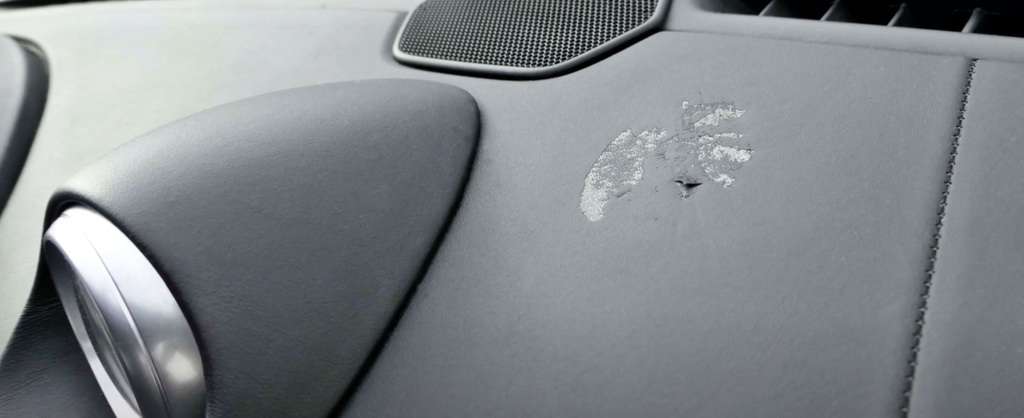
Credit: avalonking.com
Working With A Plastic Repair Kit
Welcome to our guide on removing scratches from plastic car interiors. In this section, we will delve into the process of working with a plastic repair kit to effectively restore the appearance of your car’s interior components.
Understanding Plastic Repair Kits
Plastic repair kits are specially designed to address various types of damage to plastic surfaces, including scratches, cracks, and chips. These kits typically contain everything you need to complete the repair, such as adhesives, fillers, and sanding tools. Before using a plastic repair kit, it’s essential to assess the type and severity of the damage to determine if the kit is suitable for the repair.
Following The Kit’s Instructions
When working with a plastic repair kit, it’s crucial to carefully follow the manufacturer’s instructions. These instructions often include detailed steps for preparing the damaged area, applying the repair materials, and sanding the surface to achieve a seamless finish. By adhering to the provided instructions, you can ensure that the repair is carried out effectively and the integrity of the plastic is restored.
Professional Assistance
Professional assistance can be a reliable option when it comes to dealing with stubborn scratches on your plastic car interior.
Considering Professional Help
Professional help ensures that the scratches are efficiently removed without causing any further damage.
Finding An Experienced Technician
An experienced technician possesses the skills and tools necessary to repair the scratches effectively.
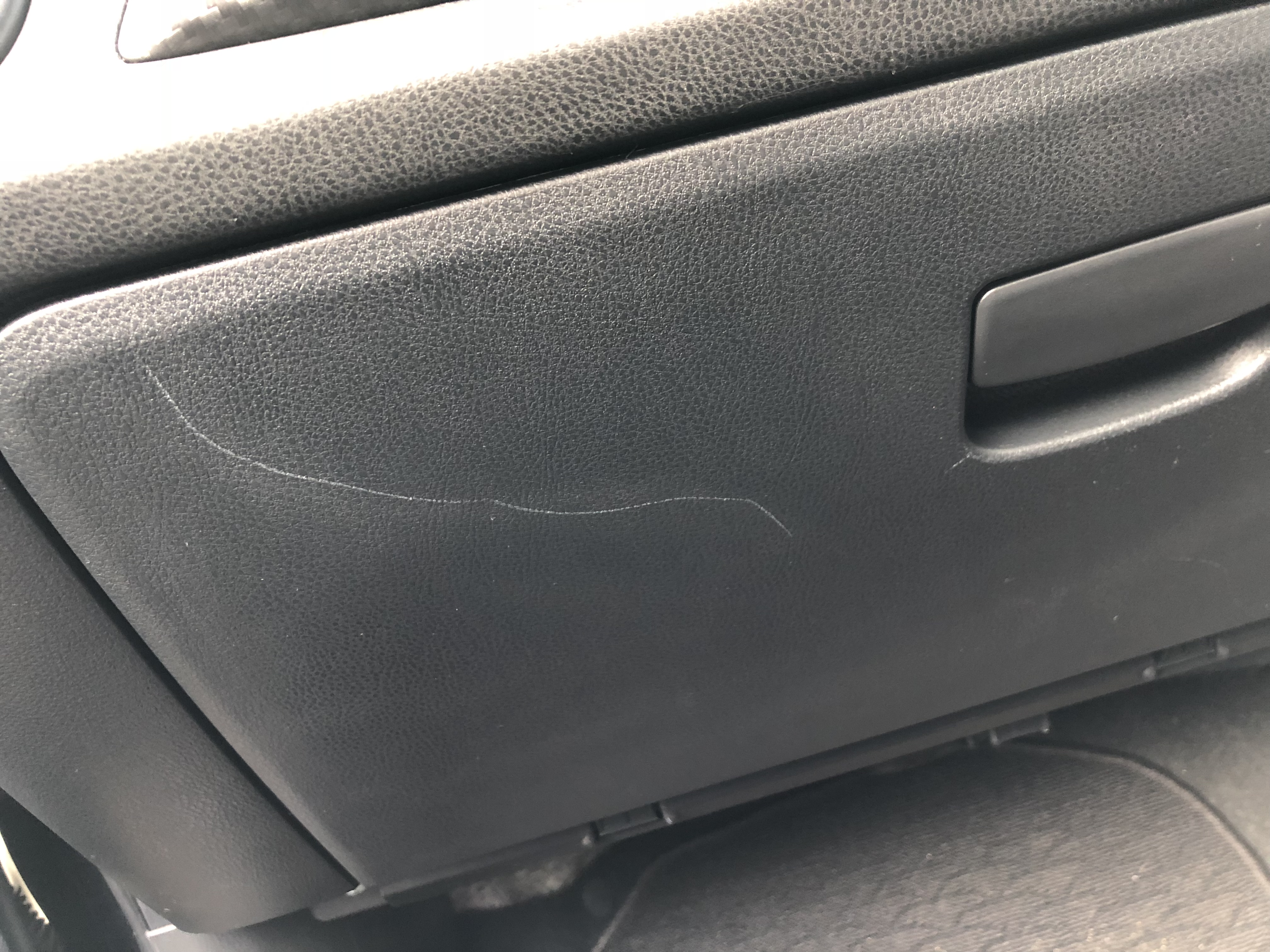
Credit: www.gt86.org.uk
Preventive Measures
Preventive Measures:
Using Protective Covers
Cover your car’s interior with protective covers to shield it from potential scratches.
Regular Cleaning And Maintenance
- Regularly clean the plastic surfaces to prevent dirt accumulation.
- Use mild cleaners to avoid damaging the plastic.
- Perform routine inspections to catch scratches early.
Conclusion
It’s possible to remove scratches from your plastic car interior using simple household items and a bit of elbow grease. With the right approach and patience, you can restore your car’s interior to its former glory, saving on costly repairs.
Keep these tips in mind for a pristine car interior.
